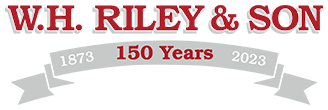How To Choose An HVAC Filter For Your Home

The quality of our indoor air has long been a topic of interest for families with asthma and other respiratory problems – but these coronavirus days, it’s become a top of mind for all of us.
If you have a forced air heating system (one with vents and a furnace rather than baseboards or radiators and a boiler) in your RI or MA home, one of your most important jobs when it comes to protecting the quality of your indoor air is to change its filters regularly. A furnace air filter is the first line of defense against the microorganisms, dander, and other allergens that will inevitably find their way into your home (as a side bonus, a clean air filter will also lower energy bills and contribute to a longer lifespan for your equipment).
But how do you choose an air filter that works best for your home heating system? Let’s take a look at some of the variables.
Categories of air filter
Air filters come in a number of types and materials, each with different protective power and price. The two most common filters we use and install are:
- Flat-panel: Typically the cheapest type of air filter, traditional disposable flat-panel models have fibers stretched over a framework. They’re disposable and easy to install, but they are also the most porous type of filter.
- Washable: Washable or reusable filters come in both flat-panel and pleated options, and they can be hosed down with water or vacuumed to remove particle buildup. Washable filters usually have a life span of two to four years, depending on use.
A warning about pleated and HEPA filters
Two types of air filter you may hear about are pleated and HEPA filters. Pleated filters use dense screens of cotton or plastic fibers to remove particles from the air, while HEPA (High-efficiency particulate air) are super-dense filters that are required to remove at least 99.97 percent of particles in the air that are 0.3 microns or larger.
While the extra protection offered by these two options may seem helpful, beware: they are often too restrictive for warm air systems and can cause heat exchangers to overheat due to lack of air flow.
The bottom line: always make sure the right type of air filter is installed per manufacturer’s specifications.
UV systems add even more germicidal protection
If you want to up the ante on protection against mold spores, bacteria, viruses, and pollen spores in your home, consider adding a UV light to your HVAC system. A UV light is installed either near the supply or return vents of your ductwork or over the air conditioning coil and acts as a supplement to your air filter, catching the very smallest microorganisms that circulate in your home’s air. We’ll talk more about UV lights, including the APCO-X Dual UV Light 24 Volt Technology System, in a future blog. Stay tuned!
Did you know that a furnace tune-up from W.H. Riley & Son includes a filter replacement? Now you do. Contact us today to learn more about our expert furnace maintenance in southeastern Massachusetts and northern Rhode Island!
Please note: at W.H. Riley & Son, your safety and comfort are always our priority. Please see our COVID-19 Service Update Page to learn more about how we are working to keep your family and our crews safe and your home comfort systems working through this challenging time.

